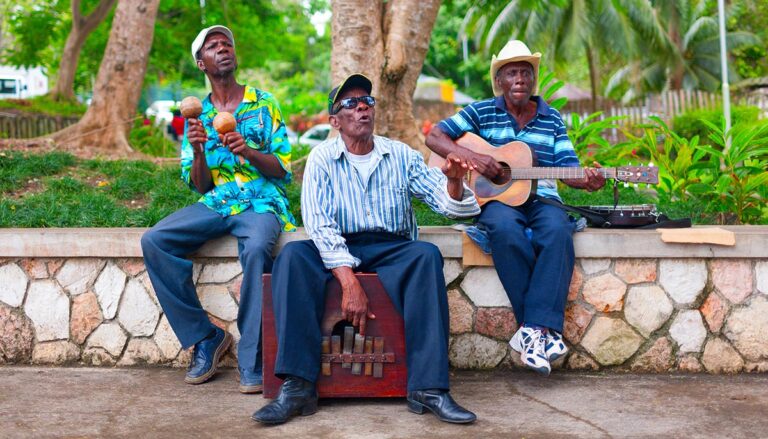The broadcasting authority in Jamaica has banned TV and radio content that “glorifies illegal activity.” The move comes amid high levels of violent crime, but it also opens the debate on whether media influences personal actions.
Jamaica bans TV and music glorifying illegal activity
The broadcasting authority in Jamaica has banned TV and radio content that “glorifies illegal activity” such as drug use, illegal use of firearms, scamming, and swearing. They made the decision amid high levels of violent crime.
Even words that are “near-sounding” to swear words are banned, BBC reported.
Jamaica is under a siege of violent crime. In 2021, the island nation had one of the highest murder rates in both Latin America and the Caribbean.
Jamaica’s broadcasting authority says using public airwaves to broadcast songs that glorify illegal activity might give “the wrong impression that criminality is an accepted feature of Jamaican culture and society.”
Critics of the ban argue that music and other media is simply a reflection of life.
Does media influence social norms?
Prior research suggests that media does influence individual beliefs, attitudes, and behaviors, and thus, social norms as well, according to Harvard.
A study undertaken in the rural indigenous community of San Bartolome Quialana in Oaxaca, Mexico, tested broadcasts through both a village loudspeaker and community meetings to a portion of the community. Others did not receive the broadcasts. The messages were found to influence the social opinions of the community. The study also found that information delivered socially was more influential than information delivered individually or privately.
Does the media someone consumes influence their actions?
The debate over whether the type of media content someone consumes has an influence over their personal actions – such as the use of drugs, alcohol, and violence – has been brewing for decades.
Authorities and advocacy groups have long accused certain types of media (movies, TV, music, video games) of contributing to the criminal actions of individuals, while defenders of artistic freedom say it amounts to scapegoating, that individuals are responsible for their actions.
A recent study by the Prevention Research Center of the Pacific Institute for Research and Evaluation in Berkeley, California, found that young people who listen to rap and hip-hop are more likely to commit violent acts and abuse alcohol, NPR reported.
Research conducted by Northwestern University found a constant rise in the mention of drugs in rap music. In the early 1980s, 11 percent of the Top 40 most popular rap songs contained lyrics about drugs, Arcis reported. The number increased to 19 percent by the end of the decade. By 1993, 70 percent of rap lyrics mentioned drugs. Currently, drug lyrics are found in 85 percent of the most popular rap songs.
Studies by Georgetown University, Iowa State University, the American Psychological Association, and the Texas Department of Human Services all concluded that listening to music with explicit lyrics increases aggressive thoughts and feelings, which often turn into violent and/or illegal actions.
Numerous newer studies have found that many rap lyrics contribute to violence in teens. The studies found that teens who listen to this music also take part in drugs and alcohol at a younger age, according to the American Academy of Child and Adolescent Psychiatry, Youth Voices reported.





